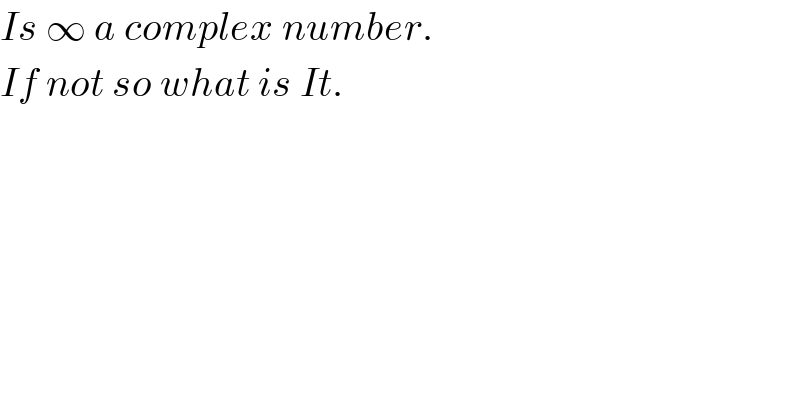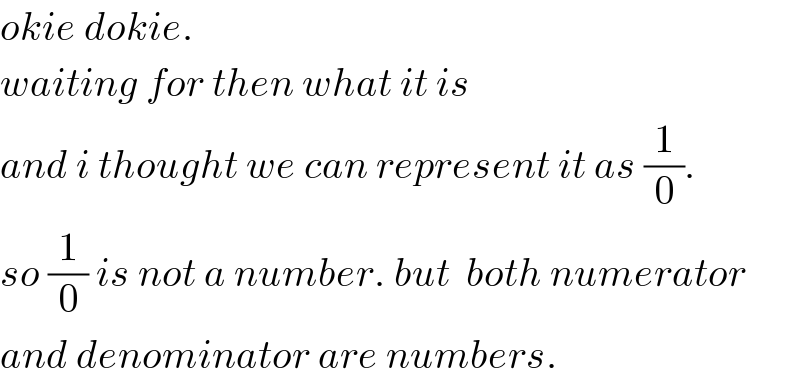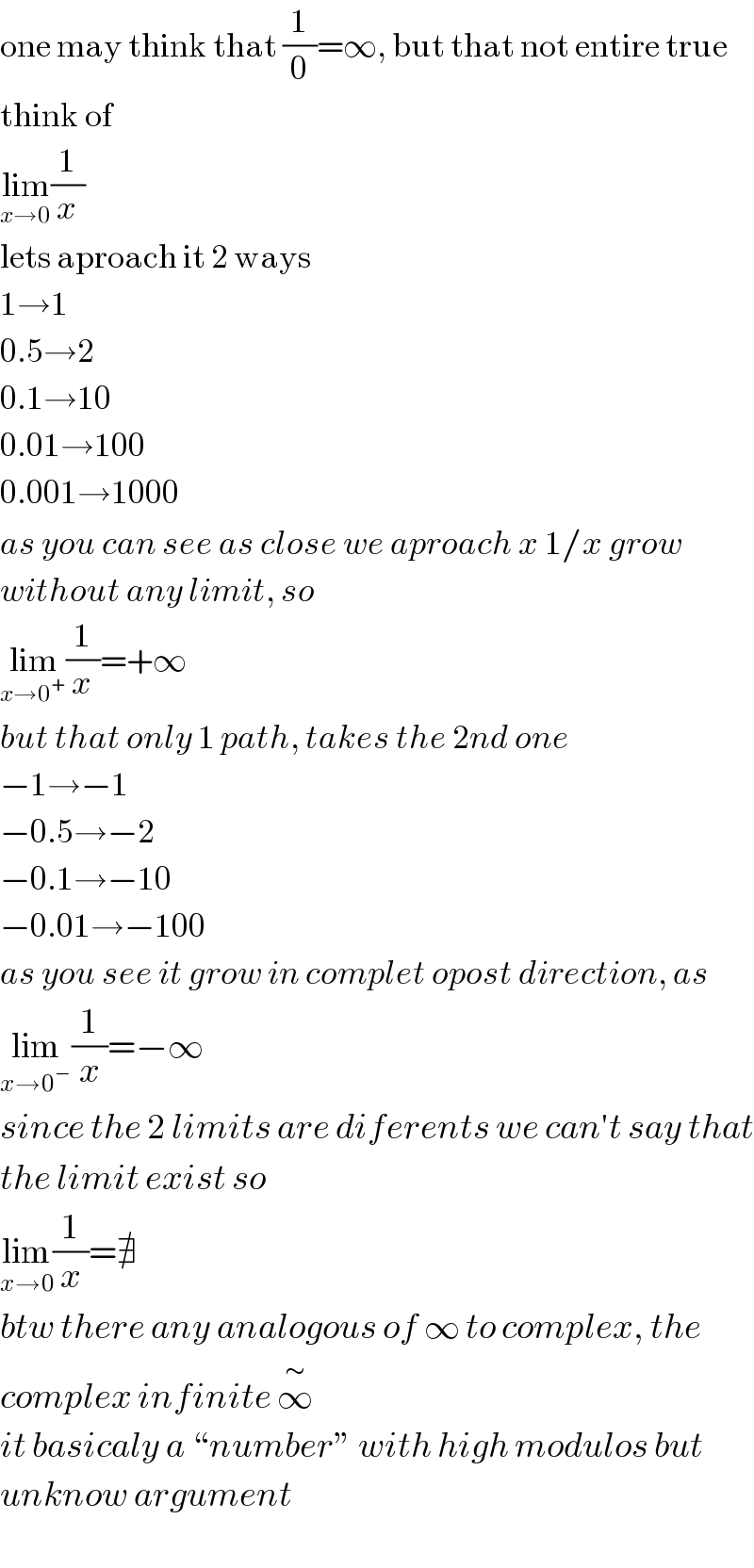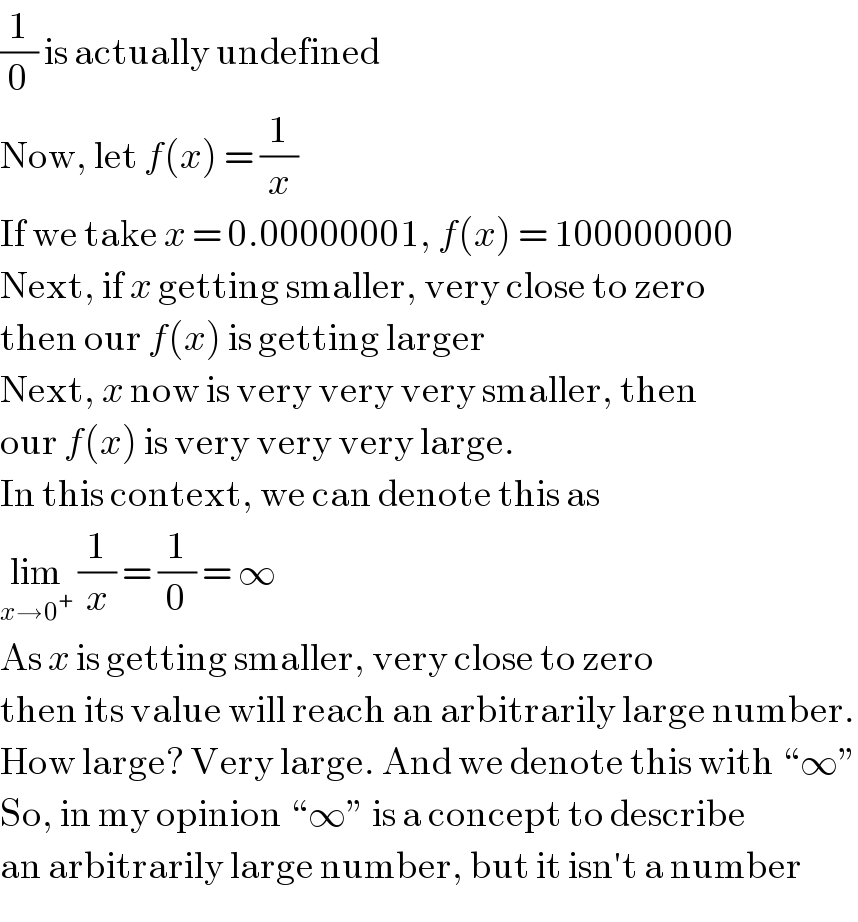Question Number 56244 by Kunal12588 last updated on 12/Mar/19

Commented by Joel578 last updated on 12/Mar/19

Commented by Kunal12588 last updated on 12/Mar/19

Commented by 121194 last updated on 12/Mar/19

Commented by Joel578 last updated on 12/Mar/19

Commented by Joel578 last updated on 12/Mar/19

Commented by Kunal12588 last updated on 12/Mar/19

Commented by prakash jain last updated on 12/Mar/19
please visit the below link for definition of complex infinity
http://mathworld.wolfram.com/ComplexInfinity.html
